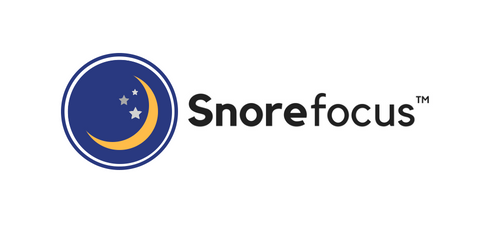5 Common Snoring Myths Debunked
Various different issues have been tormenting the lives of millions of people all over the world for centuries. However for every problem there is generally a solution or in many cases a whole bunch of them. Humans are by their nature curious and creative. Great stories are often told of challenges overcome and victories achieved. But how much is story fabricated for effect, and how much is truth or fantasy.
Sometimes you will have a case where one person suggests a solution to another person based on a problem the latter person is experiencing. This solution may have come from a wide range of sources including another person’s opinion, a TV show, a magazine/newspaper, a quick google or some unique cure passed down through the generations from years gone by.With so much information at our disposal today it is important to understand that finding the right sources and selecting the most relevant solutions are very important. There are many myths and miracle cures bandied about which are often sold as being the real deal without actually producing results in many cases.
Something can look great and sound great but unless it solves a problem for you, in other words unless it helps you achieve what it is you want, then it really isn’t worth all that much. The prevalence of myths and inaccurate information does exists and the best indicator or barometer to measure with is the old saying ‘if it sounds too good to be true it usually is’.
To free yourself from some of the common snoring misconceptions that exist, here are the top 5 common snoring myths debunked. There are many others out there, but here are five to start with.
Myth #1: Snoring is Harmless
More often than not, snoring is the result of different causes which are reversible and not harmful at all, such as alcohol intake and poor sleeping position. But, this is not really the case all the time, with snoring often associated with several health issues. If a person is a habitual snorer especially a chronic one, it is possible that an actual medical concern is involved.
One such medical condition is what you call Obstructive Sleep Apnea. Studies have revealed that people who suffer from such a condition often experience breathing difficulties and wake up at night trying to gasp for breath. The airway obstruction can lead to lack of adequate supply of oxygen to the brain and put strain on your heart. Snoring on a regular basis is also associated with obesity and hypertension. Thus, you can never dismiss snoring as just a simple annoying habit.
Myth #2: A Nightcap Before Bed Stops Snoring
True, sipping some cocktail after dinner may help you doze off the moment you hit the pillow. But, don’t be surprised when you wake up the following morning feeling groggy. A new study recently released has came to the conclusion that alcohol can reduce REM or rapid eye movement sleep. This is that restorative and deep sleep that happens while you dream. When you drink more, you will be getting less REM sleep.
Alcohol gets eliminated from your body and can cause withdrawal symptoms 2 or 3 hours later, and this can then have a negative reaction for your body and effect your sleep pattern. You will wake up often yet very briefly without even remembering it.
You will still be getting a lower quality of sleep. Studies have revealed that acute high doses of alcohol can disturb sleep while lower doses may help insomniacs. Alcohol also causes snoring to occur even in people who rarely snore. Read this post on the effects alcohol can have on snoring.
If you ever feel like drinking in the evening, try to stick to a maximum of two drinks as this is said to have the least effects on your sleep, however you may find your snoring persists.
Myth #3: Snoring Can’t Be Cured
It is true that there is no such thing as a magic cure for snoring that will work perfectly for every snorer. Some people are mouth snorers, others are nasal snorers and others may have unique underlying medical conditions. So there is no one size fits all solution to snoring, however, there are several treatments available out there and it is very likely that majority of them will work for some people.
One such treatment with a proven track record and expert approval is an oral appliance therapy. It involves the snorer using a Customized Anti-Snoring Mouthpiece, which rearranges the jaw and tongue in s comfortable way to keep airways open in your throat. Usually, these are classified as either MAD or mandibular advancement devices or TRD or tongue retaining devices.
Among these two, there were more studies conducted on MAD appliances. They will gently set lower jaw forward ever so slightly to clear the airways and decrease vibrations from occurring which causes snoring. With the numerous studies done, the weakest results have shown a 50% effectiveness rate while the strongest results were proving an 80% effectiveness rat.
Nowadays, mouthpieces do not have to be costly. In previous years, majority of snorers would have to spend thousands and go to their dentist just to get one. However, today, quality OTC custom fitting models are made available and these include the ones that are completely adjustable to ensure that the users avoid jaw or other discomfort of any kind.
Myth #4: Only Overweight People Snore
Once you are searching for tips on the ways to stop snoring, a piece of advice you’ll read over and over again is to shed some extra pounds. Excess weight may play an important role in snoring, particularly if you have excess fat around your throat area which will be interfering with your airway. It is a common cause of snoring, however it’s not the only reason why somebody could snore.
Below are some of the other reasons why rail-thin people could snore as well:
- Genetics – Anatomical abnormalities in a person’s throat and nose like a deviated septum or enlarged tonsils may block and narrow the airways and therefore, result in snoring.
- Retrognathia or Receding Chin – With this kind of jaw, the upper airway’s structures are pushed towards the throat’s back, which narrow the airway so snoring happens.
- Aging – The process of aging results in softness and relaxing of the throat muscles, which results in snoring.
Losing weight in a controlled way, using dietary improvements and exercise is a great start in order to help someone who is overweight stop snoring.
Myth #5: People Only Snore on Their Backs
It is true that you are less likely to snore when you are sleeping on your side. However, the elbow in the ribs treatments from spouse isn’t foolproof. There are many reasons behind it. First and foremost, for non-apneic snorers, side sleeping helps snoring, yet does not get rid of it. In a Japanese study, it was tested that the snoring frequency in twenty-one non-apneic snorers, which tested both supine and non-supine, a reduction in snoring was significant and snoring happened sixty-three percent less frequently when this group of people slept on their side.
Nevertheless in this position, snoring still occurred 6.4 percent of the time. With an average 98.3 dB intensity, which is equal to a farm tractor.
This myth is even more busted if you are talking about snorers who have sleep apnea. Apneic snorers were also tested in both sleep positions. The apneic group snored 16.9% of the time while on their backs and they snored 15.4% on their sides. The snoring’s intensity level actually increased when these apneic snorers slept on their sides.
Conclusion
Many myths exist in regard to snoring and hopefully this post will give some clarity about what’s genuine and what’s not. If you have any questions in regard to snoring or sleep then have a browse around the site. Here you will find the relevant information you need in order to improve your understanding of sleep and snoring related issues and find the solutions you are looking for.
If you find this or indeed any other post useful or indeed if you have any questions please leave them I the comments section below. We would love to hear your thoughts and opinions.
Check out our other blog posts in our Snorefocus Blog Pages.




